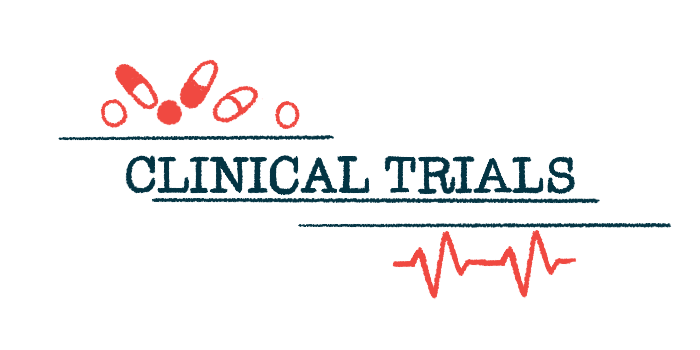FDA clears Endotronix to start trial of continuous monitoring device
Cordella Sensor measures pulmonary artery pressure in those with heart failure
Written by |

Endotronix has been cleared by U.S. regulators to launch a clinical trial testing its Cordella Sensor, an implanted device that measures the pressure in the blood vessels of the lungs, in people with heart failure that slightly limits their physical activity.
The study, given the green light by the Food and Drug Administration (FDA), will “help us better understand the impact of pulmonary hypertension on right ventricular function over time and provide guidance on how to scale this important therapy with patient engagement,” Lynne W. Stevenson, MD, principal investigator for the study and heart failure specialist at Vanderbilt University Medical Center, said in a press release from Endotronix.
The pulmonary arteries are the vessels that carry blood from the heart through the lungs to pick up oxygen. Pulmonary hypertension refers to high pressure in these vessels, which puts strain on the right ventricle (the part of the heart that pumps blood to the lungs).
Cordella Sensor continuously monitors pulmonary arterial pressure
Endotronix’s Cordella Sensor is an implantable device designed to continuously monitor the pressure in the pulmonary arteries, which may help guide care for people with heart failure.
The term “heart failure” refers generally to conditions where the heart isn’t able to adequately pump blood through the body. Heart failure can be divided into classes based on the severity of symptoms. In class III heart failure, patients have notable limitation on their physical activity, whereas in class II heart failure, patients have mild physical limitations.
Prior studies have generally indicated that routine assessment of pulmonary artery (PA) pressure can be helpful in the management of patients with class III heart failure, but it’s less clear if this type of monitoring also can benefit patients with milder symptoms of class II heart failure.
“The evidence in favor of PA pressure-guided therapy for [class III heart failure] patients has been consistently validated over the last 15 years. However, questions remain as to the therapy benefit in [class II heart failure] patients and how to best scale effective remote [heart failure] management,” Stevenson said.
We remain confident in the benefits Cordella brings to patients and clinicians to improve heart failure outcomes and remain on track for a mid-2024 launch.
Trial to start later this year, enroll up to 1,500 participants in US, Europe
The newly authorized clinical trial, dubbed PROACTIVE-HF 2, is expected to enroll up to 1,500 people with heart failure in the U.S. and Europe. Enrollment is planned to start later this year.
The trial will have two arms, or groups. The randomized arm will include patients with class II heart failure who are at risk of congestion (a build-up of fluid around the heart). All patients (and their clinicians) will have access to routinely collected data about blood pressure, heart rate, and weight. Some patients will also have access to data on pulmonary arterial pressure measured by the Cordella Sensor.
The main goal of this arm is to compare whether having access to the sensor’s monitoring alters the time to a first clinical heart failure event or death.
The second arm of the study will include patients with class III heart failure at risk of poor outcomes. All participants in this arm will undergo a clinician-directed self-management program at home, and the main goal will be to track rates of hospitalization or death related to heart failure over the course of a year.
“The randomized arm of PROACTIVE-HF 2 will be the first study to compare [pulmonary artery] pressure-guided therapy to a telehealth control arm,” Stevenson said. “The single-arm cohort evaluates the power of engaged patients and subsequent impact on outcomes.”
Endotronix is already running a clinical trial called PROACTIVE-HF (NCT04089059) testing the Cordella Sensor in 457 people with class III heart failure. The study was initially planned to be a randomized controlled trial where some participants (control group) were blinded to pulmonary artery pressure values, but was redesigned into an open-label study where all patients get access to data.
Cordella monitoring led to significant decrease in hospitalizations
Findings showed that, over a year with Cordella monitoring, the average rate of hospitalizations related to heart failure was 0.3 per year, which is a significant decrease compared to the year prior, where patients averaged 1.3 hospitalizations per year.
Most patients (78%) said they made lifestyle changes based on changes in mean pulmonary arterial pressure (mPAP) measured by the device, and nearly all (86%) said this monitoring had a positive impact on their health.
Among patients with mPAP higher than 20 mmHg, a common cutoff for pulmonary hypertension, average mPAP scores decreased from 28.1 to 23.6 mmHg after a year of monitoring.
Based on these data, Endotronix is planning to submit a pre-market approval (PMA) application, which is a formal request to the FDA seeking approval of the device, by the end of the year.
“We are establishing a strong foundation of compelling clinical evidence for Cordella with early PROACTIVE-HF data,” said Harry Rowland, PhD, CEO and co-founder of Endotronix. “The team is driving towards PMA submission before the end of this year and looks forward to sharing the results from the full study cohort in 2024.
“We remain confident in the benefits Cordella brings to patients and clinicians to improve heart failure outcomes and remain on track for a mid-2024 launch,” Rowland said.





